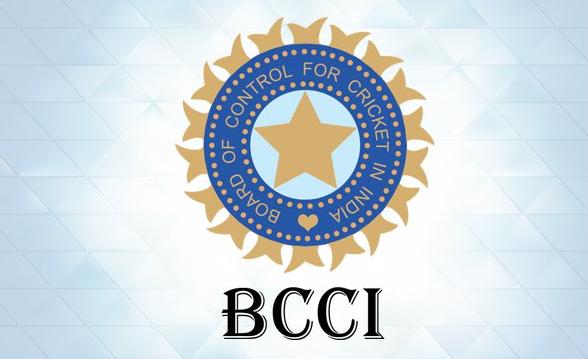- Advertisement -
The Board of Control for Cricket in India (BCCI) and official broadcasters have come under sharp criticism for proceeding with the highly anticipated India-Pakistan match at the Asia Cup despite escalating political tensions and public backlash. The contentious decision to go ahead with the high-profile clash has sparked a wave of disapproval from fans, political commentators, and media alike, who question the prudence of staging the encounter amid mounting calls for a boycott. This controversy, dubbed the “Deshdrohi BCCI” debate, highlights the complex intersection of sports, nationalism, and diplomacy on one of cricket’s biggest stages.
Deshdrohi BCCI Faces Backlash Over Decision to Proceed with Controversial IND PAK Match at Asia Cup
The decision to proceed with the India-Pakistan encounter at the ongoing Asia Cup has stirred widespread criticism, with the BCCI and broadcasting partners coming under intense scrutiny. Critics accuse the cricket board of prioritizing commercial interests over the prevailing political tensions and public sentiment. Social media platforms and cricket forums have been inundated with voices condemning what many describe as a “provocative move” given the volatile atmosphere surrounding Indo-Pak relations. Opponents argue that the match could escalate existing tensions rather than fostering sportsmanship and goodwill, calling into question the ethical responsibilities of the organizers.
Supporters of calling off the game highlight several key concerns:
- Security Risks: Potential threats to players and fans in light of recent cross-border disputes.
- Political Sensitivity: The match could be perceived as undermining ongoing diplomatic efforts.
- Broadcast Ethics: Networks allegedly prioritizing viewership ratings over national harmony.
Meanwhile, the BCCI defends its stance, emphasizing the importance of sports as a bridge-building platform while promising enhanced security measures. The unfolding debate puts a spotlight on the intricate balance between sport, politics, and business in one of the world’s most watched cricketing events.
| Aspect | Supporters’ Concerns | BCCI’s Position |
|---|---|---|
| Security | High threat potential | Enhanced protocols in place |
| Political Climate | Risk of escalation | Sports transcend politics |
| Commercial Interests | Prioritizing ratings | Revenue sustains cricket development |
Broadcasters Accused of Ignoring Political Sensitivities Amid Rising Tensions Between India and Pakistan
In a move that has sparked widespread controversy, several leading broadcasters and the Board of Control for Cricket in India (BCCI) have been accused of disregarding the delicate political climate between India and Pakistan by proceeding with the highly anticipated IND-PAK match at the Asia Cup. Critics argue that the decision undermines ongoing diplomatic efforts and disregards public sentiment, escalating tensions rather than easing them. Voices from both nations have expressed strong objections, calling for a more thoughtful approach that prioritizes regional stability over commercial interests.
Key concerns highlighted by analysts and activists include:
- Insensitive timing: The clash coincides with rising political rhetoric and unresolved conflicts, making the event a potential flashpoint.
- Commercial gains vs. national interest: The prioritization of broadcasting rights and advertising revenue over peace initiatives is being heavily criticized.
- Lack of consultation: Stakeholders suggest that limited dialogue occurred with diplomatic agencies before finalizing the match schedule.
| Stakeholder | Criticism | Response |
|---|---|---|
| BCCI | Accused of ignoring political tensions | “Sport should unite, not divide.” |
| Broadcasters | Prioritizing ratings over peace efforts | “Viewership demand justifies the decision.” |
| Diplomatic Experts | Event could worsen political climate | “Calls for postponement remain unheard.” |
Calls for Transparent Policies and Ethical Guidelines in Scheduling High Stakes International Cricket Encounters
The decision to proceed with the highly anticipated India-Pakistan match amid geopolitical tensions has ignited fierce debate over the lack of transparency and clear ethical frameworks guiding such scheduling. Critics argue that the governing bodies, notably the BCCI and associated broadcasters, have neglected the wider ramifications by prioritizing commercial gains over the spirit of sportsmanship and regional sensitivities. There is a growing demand for transparent policies that outline explicit criteria for hosting sensitive high-stakes encounters, ensuring that the interests of fans, players, and national sentiments are balanced responsibly.
Calls for standardized ethical guidelines have gained momentum, emphasizing the need for:
- Consultation with diplomatic and sports authorities before scheduling matches with potential political fallout
- Public disclosure of decision-making processes behind fixture announcements
- Implementation of risk-assessment protocols addressing security and cultural impact
- Clear conflict resolution mechanisms when concerns arise
| Aspect | Current Practice | Proposed Improvement |
|---|---|---|
| Decision Transparency | Opaque, ad-hoc | Public disclosures and stakeholder inputs |
| Conflict Sensitivity | Ignored or minimal | Mandatory impact assessments |
| Consultation | Limited to cricket bodies | Inclusion of diplomatic channels |
| Accountability | Diffuse responsibility | Clear roles and sanctions |
Insights and Conclusions
As the controversy surrounding the broadcasting and scheduling of the India-Pakistan clash at the Asia Cup intensifies, calls for greater accountability and sensitivity from both the BCCI and media partners continue to grow. Critics argue that the decision to proceed amid escalating tensions risks overshadowing the spirit of cricket and raising questions about the sport’s role in diplomatic relations. Moving forward, stakeholders may need to reconsider how such high-stakes matches are managed to balance national interests, fan engagement, and broader geopolitical sensitivities.
- Advertisement -


